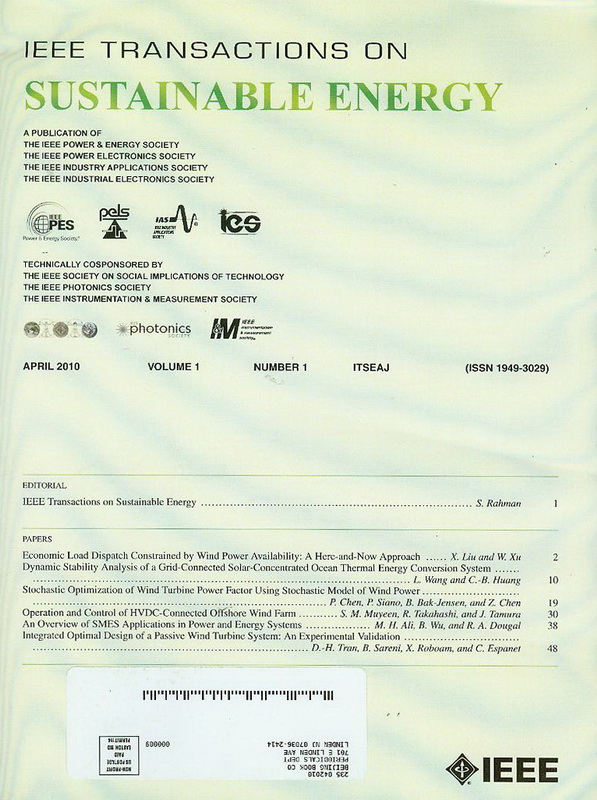Model Predictive Control Optimization Strategy for Integrated Energy Systems: A Two-stage Dual-loop Optimization Framework
IF 8.6
1区 工程技术
Q1 ENERGY & FUELS
引用次数: 0
Abstract
Integrated Energy Systems (IESs) are important vehicles for achieving energy conservation and emission reduction. However, operating an IES smoothly is difficult due to source–load fluctuations and the complexity of the multiple timescales of different energy flows. To tackle the challenges, this paper proposes a two-stage dual-loop optimization framework for IESs, where the two stages comprise the first stage: day-ahead cooperative optimization of source-storage-demand (DCOS), and the second stage: intraday dual-loop rolling optimization control (IDRO). In DCOS, energy storage, and integrated demand response models are established, and a carbon emission trading mechanism is introduced to achieve an economically low-carbon operating plan. In IDRO, an electric power rolling optimization model based on model predictive control is established in the inner loop, and a cooling and heating power output adjustment strategy based on user comfort event-trigger mechanism is developed in the outer loop. The proposed optimization strategy enables the coordinated operation of multiple energy flows across various time scales, effectively mitigating the imbalance between production and demand during intraday operations under source–load fluctuations scenario. In case studies, this strategy is applied to a typical IES, with simulations conducted to evaluate its performance during typical summer and winter seasons.综合能源系统的模型预测控制优化策略:两阶段双环优化框架
综合能源系统(IES)是实现节能减排的重要手段。然而,由于能源-负荷波动以及不同能源流的多重时间尺度的复杂性,综合能源系统的平稳运行十分困难。为了应对这些挑战,本文提出了一种针对 IES 的两阶段双环优化框架,其中两个阶段包括第一阶段:日前源-储-需协同优化(DCOS)和第二阶段:日内双环滚动优化控制(IDRO)。在 DCOS 中,建立了储能和综合需求响应模型,并引入了碳排放交易机制,以实现经济低碳的运营计划。在 IDRO 中,内环建立了基于模型预测控制的电力滚动优化模型,外环开发了基于用户舒适事件触发机制的冷热功率输出调整策略。所提出的优化策略可实现多种能源流在不同时间尺度上的协调运行,有效缓解源-负载波动情况下日间运行期间的生产与需求失衡问题。在案例研究中,该策略被应用于一个典型的 IES,并在典型的夏季和冬季进行了模拟,以评估其性能。
本文章由计算机程序翻译,如有差异,请以英文原文为准。
求助全文
约1分钟内获得全文
求助全文
来源期刊

IEEE Transactions on Sustainable Energy
ENERGY & FUELS-ENGINEERING, ELECTRICAL & ELECTRONIC
CiteScore
21.40
自引率
5.70%
发文量
215
审稿时长
5 months
期刊介绍:
The IEEE Transactions on Sustainable Energy serves as a pivotal platform for sharing groundbreaking research findings on sustainable energy systems, with a focus on their seamless integration into power transmission and/or distribution grids. The journal showcases original research spanning the design, implementation, grid-integration, and control of sustainable energy technologies and systems. Additionally, the Transactions warmly welcomes manuscripts addressing the design, implementation, and evaluation of power systems influenced by sustainable energy systems and devices.
 求助内容:
求助内容: 应助结果提醒方式:
应助结果提醒方式:


